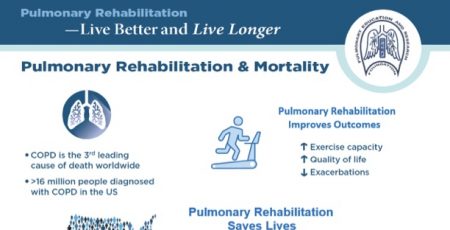
22 Jun Stay Active to Strengthen Your Immune System During COVID-19
Even before COVID-19, lower respiratory tract infection (pneumonia) was the most common cause of death by a communicable disease, accounting for more than 3 million deaths per year. In low income countries, pneumonia is the biggest killer of children and adults of any cause. At the time of writing, COVID-19 associated pneumonia has added another 14% to that disturbing statistic (413,00 more people) in just a few months.
Everyone is at risk of catching the virus that causes COVID-19. As a species, humans have never before been exposed to this new form of coronavirus, and therefore none of us have the immune defenses that could prevent us from catching COVID-19. Instead, we rely on a part of our immune system termed the “innate immune system” to quickly recognize the virus as an intruder and mount a defense to prevent the infection from becoming rampant. But as we get older, the function of our immune system (including the innate immune system) declines. This makes elderly individuals more susceptible to having a severe illness caused by an infection of the novel coronavirus.
However, aging isn’t the only thing that reduces how well our immune system works to fight off infections. Naturally, people with chronic diseases that attack the immune system, such as HIV-AIDS, are less able to fight infections and therefore more likely to get sick. But much more widespread problems, which also reduce the functioning of the immune system, are obesity and diabetes. Those with high blood pressure, or chronic heart, lung or kidney diseases also have impaired immune system function.
Obesity is a leading cause of at least 3 of the most important underlying conditions for COVID-19: hypertension, type 2 diabetes, and cardiovascular disease. By carrying extra weight, our body becomes chronically inflamed, which actually weakens the immune system and reduces our ability to protect ourselves from infections. Research shows that obese individuals have an impaired antibody response to the seasonal flu and that they can transmit the flu virus for a longer duration than those who are normal weight.
It will come as no surprise that tobacco smoking or vaping also has harmful effects on the immune system. Not only does inhaled smoke or vape contain numerous potentially harmful chemicals, but nicotine itself also suppresses the immune system. When nicotine is increased in the bloodstream, so is the replication rate of the influenza virus and harmful bacteria in the lungs. This means that smoking, vaping as well as other types of nicotine products, such as chewing tobacco, gum or patches, can also impair the body’s innate immune system to recognize and eliminate invading microbes such as the SARS-CoV-2 virus.
We should all want to act to strengthen our immune systems, especially during the current pandemic. But, I dare say, that many of us have experienced first-hand that one result of self-isolation is eating more and exercising less. How many of you have put a belt on recently and wondered “was that the same notch I was using before coronavirus?”! We all know that battling the spread includes working regular exercise into your daily schedule. Research shows that regular moderate intensity activity is the right type of exercise to boost your immune system and better defend against common respiratory illnesses. The U.S. Department of Health and Human Services physical activity guidelines state that to gain health benefits, adults should:
- Do moderate-intensity exercise at least 2.5 to 5 hours per week (20 to 40 minutes per day)
OR
- Do vigorous-intensity aerobic physical activity for 1.25-2.5 hours per week (10 to 20 minutes per day)
AND
- Aerobic activity should preferably be spread throughout the week
- Do two or more days per week of muscle-strengthening activities, that are moderate or greater intensity, and that involve all major muscle groups
- Additional health benefits are gained by engaging in physical activity beyond these guidelines
Exercising and losing some of that midriff tire is not a replacement for social distancing, face covering, and hand washing to reduce the risk for COVID-19 infection illness. But a strong immune system will help your body cope better should you be exposed to someone infected with coronavirus. Read our guidance on starting a home exercise program here. We’ve also collected some resources to help those of you with lung diseases exercise safely from home.
Most of all, stay safe and well!
Asghar Abbasi PhD and Harry Rossiter PhD
Division of Respiratory and Critical Care Physiology and Medicine
The Lundquist Institute for Biomedical Innovation at Harbor-UCLA Medical Center





Pingback:Exercise During COVID-19: A Conversation | PERF
Posted at 16:19h, 06 May[…] Increasing physical fitness through exercise training is beneficial for immune function, which may help reduce severe disease if one were to catch the virus; hence the importance of […]